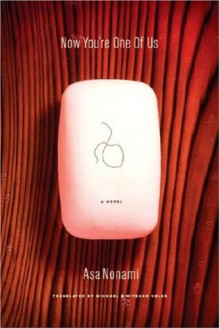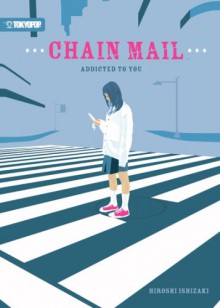
Because they owe someone money, Noriko's parents agree to consider an arranged marriage between her and Kazuhito Shito. Kazuhito is handsome, kind, and wealthy. The marriage's main drawback is that Noriko would be expected to move away from her small town and live with Kazuhito and multiple generations of his family in their home in Tokyo. It makes Noriko nervous, but Kazuhito is wonderful and everyone in his family seems so nice when she meets them. In the end, she agrees to the marriage.
Everything goes well, for a while. Nobody's personality suddenly changes - everyone is just as friendly as when she and Kazuhito first met. It does turn out that Kazuhito wasn't immediately forthcoming about his mentally handicapped younger brother and bedridden grandfather, which Noriko worries is a sign that she'll be roped into being their caretaker, but thankfully that isn't the case. Everyone in the family supports each other, and disagreements are resolved by the family matriarch, Great Granny Ei.
Two months after her marriage to Kazuhito, Noriko's peaceful life is interrupted by the arrival of a man from the nearby area. It turns out that the Shitos are his landlords and he hopes to get permission to pay his rent a little late this month. He also wants to tell Noriko something important but is interrupted by one of the Shitos before he gets the opportunity. After that, Noriko visits her parents for the first time since her marriage and comes back to discover that the man and his entire family died in a fire. It's arson, a suspected suicide, but Noriko begins to wonder. What had the man wanted to tell her? Did the Shitos murder him to prevent him from talking?
I wanted to read this for several reasons: the cover art was intriguingly cryptic (after finishing the book, I still have no idea what anything on the cover except maybe the little line is supposed to be), the author is a woman (it seems like most Japanese fiction translated into English is by male authors), and I had read several reviews that referred to this as Japanese gothic fiction.
I really enjoyed the bulk of this book. The mystery was intriguing, and the slightly off atmosphere was wonderful. When Noriko was at the Shito family home, it was easy to forget that this was a contemporary-set novel - it made the house ever-so-slightly claustrophobic, which intensified as Noriko's suspicions began to pile up. Were the Shitos really as pleasant as they seemed? What was the real purpose of Great Granny's private meetings with members of the nearby community? Was the relationship between Kazuhito's sister and mentally handicapped brother really as incestuously close as it seemed?
Unfortunately, the mystery was somewhat ruined by Nonami telegraphing important details too soon. I spent much of the book thinking "Okay, Noriko and I both suspect that __ is going on, but since that explanation is pretty obvious, surely the truth must be something else?" Except it wasn't. There were a couple surprises, but I think the ending would have had much more of an impact if the things Noriko spent most of the book suspecting had been more different from what was actually going on.
I did find the process by which the Shitos made Noriko one of them unsettling and disturbing (content warning for on-page gaslighting and abuse, particularly emotional and mental), but that, too, didn't have as much impact on me as it should have had, not even after the fates of a couple other characters were revealed. I found important aspects of the ending to be very difficult to swallow. The more people who know a secret, the harder it should be to keep, and the Shito family secrets had reached a point where the police should have heard something and gotten involved. And yes, the family was rich, but surely they couldn't afford to bribe everyone?
This book had a lot of promise and could have been amazing, but unfortunately it fell a little flat for me in the end. Still, I enjoyed the bulk of it and don't regret reading it. I intend to try another one of the author's works at some point in the future.
(Original review posted on A Library Girl's Familiar Diversions.)

 Log in with Facebook
Log in with Facebook 









